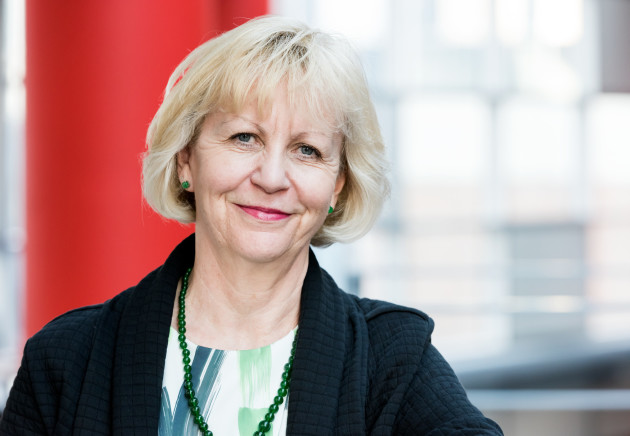Ahead of the curve: how Imperial is driving diversity in innovation and entrepreneurship
Professor Maggie Dallman, Vice-President (International)

Today I spend my time working out how to support entrepreneurs – but, back in the late 1990s, I was on the other side of the table, as the co-founder of what would become a successful biotech startup. Back then, although we had lots of great ideas, there was very little actual support. Nobody advised us on what our involvement should be, how to pitch to investors and venture capitalists, how to manage our IP or in what direction we should take the company. It was a fantastic experience and I learned a lot. But perhaps if we had had a little more support, we could have ended up in a different place.
Today, of course, Imperial is ahead of the curve in terms of entrepreneurship and innovation. Not everyone wants to be an entrepreneur – and that’s fine: it’s just one of the many ways in which we, as a university, contribute to society. Our job is to encourage everyone who has a brilliant idea to put it out there, bring it to life and see where it takes them.
We also want to increase the diversity of our entrepreneurs. Throughout the entrepreneurial world, fewer women lead companies than men – but there are statistics to show that the female-led companies are often more successful. That’s why we’ve created a range of support for female entrepreneurs. And we are seeing some incredible results.
WE Innovate, for example, is for women who are developing an early-stage business idea. It offers masterclasses, pitching advice and one-to-one support, with teams competing for £30,000 in prizes every year. Entrepreneurs receive a huge amount of support and mentoring throughout the whole process, and we’ve found some extraordinary students who are somehow managing to fit in these enormous projects alongside their study.
Whether you have expertise, ideas or financial support to offer, everyone has a part to play"
Professor Maggie Dallman
It’s been astonishing – and incredibly gratifying for me personally – to see how diversity in the projects coming forward has increased since we started offering specially tailored support for women. If we want to be innovators, we must recognise the importance of diversity. People with different lives have different needs. That means that someone else will come up with ideas that you wouldn’t come up with, because you don’t have that particular need.
Olivia Ahn, CMO (MBBS Medicine 2017), and Aaron Koshy, CEO (Bioengineering 2015, MSc Innovation Design Engineering 2017), wanted to tackle the 200,000 tonnes of sanitary-product landfill waste every year in the UK. Their idea, the Polipop – the world’s first biodegradable, flushable sanitary pad – won the WE Innovate first prize in 2017 and will soon be available to trial.
And the 2019 WE Innovate winner, Suchaya Mahuttanatan (Biomedical Science 2019), was inspired by her orthopaedic lectures to create Cadget – a breathable, washable cast that is 60 per cent lighter than the more traditional, heavy casts worn when you break a bone.
Having this specific support has enabled women who have brilliant ideas but don’t necessarily think of themselves as entrepreneurs to come forward. We know that a lack of confidence can be a barrier, and we use a range of supportive approaches to build confidence and skills.
Our work on pitching, for example, uses a simulated audience so that entrepreneurs can get used to that environment without having to be in front of people. And, interestingly, since we started WE Innovate, we have actually seen increased engagement from women with all the other projects we run at the Enterprise Lab.
Everybody should care about having diversity in everything that we do here at Imperial. This work is just another dimension of that. And everybody has a part to play, too. Whether you have expertise, ideas or financial support to offer, we are encouraging everyone to get involved. Diversity in innovation is good for everyone: for Imperial, for business and for wider society.
Maggie Dallman is Vice-President (International), Associate Provost (Academic Partnerships) and Professor of Immunology.